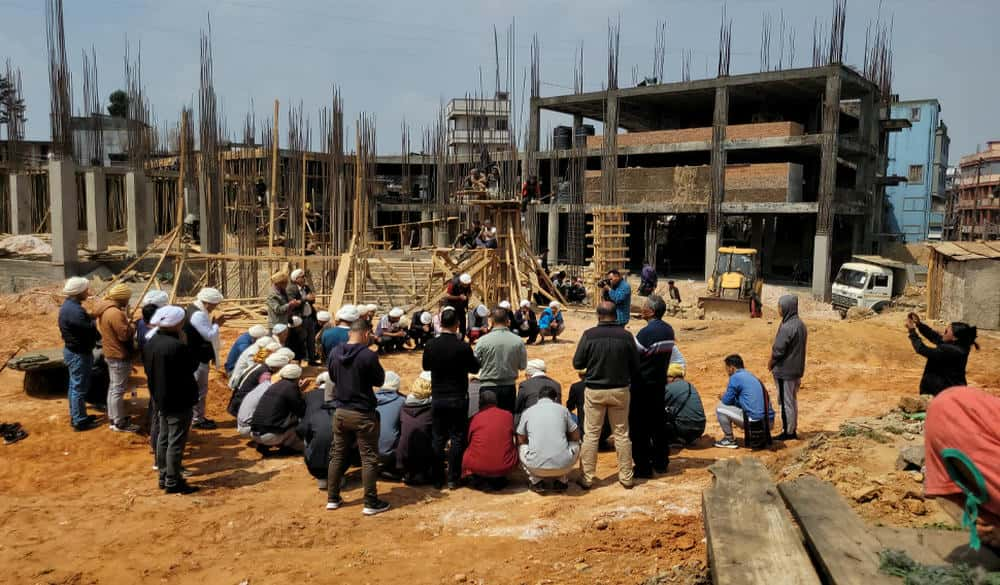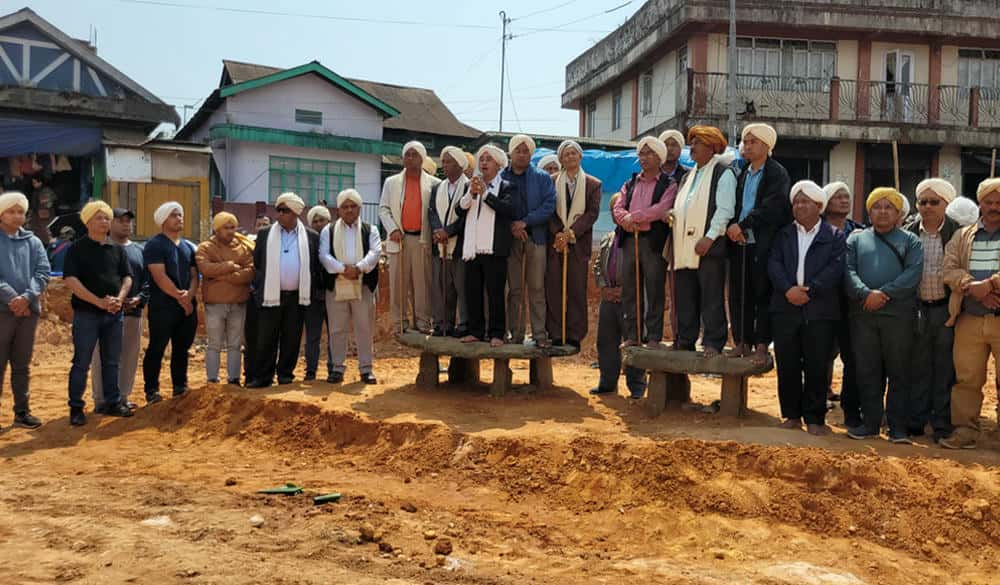Kbai Mooknor marks the beginning of Behdieñkhlam Festival

The sacred Kbai Mooknor ritual was held on March 15 at Iawmusiang Jowai under the revered leadership of Dolloi Puramon Kynjing, the spiritual custodian. The ceremony was attended by esteemed dignitaries, including Pator Raymond Nartiang, Langdoh, Sangot, and Waheh Wasan of Raij Jowai. This ancient rite marked the beginning of Behdieñkhlam, Meghalaya’s most significant festival.
Kbai Mooknor means a proclamation (Kbai) made from a sacred stone slab (Mooknor) supported by upright stones, resembling a stool. The religious leader stands on this stone to announce the start of the rituals.
During the ceremony, Chutia reminded market dwellers: “The time has arrived for Raij to begin the sacred rituals of ‘Thoh Langdoh.’ From this day forward, the faithful of Niamtre within and beyond Raij Jowai must uphold their traditions.” He also announced that Rah Chyieng – the bones of the departed – must remain undisturbed within Jowai until Behdieñkhlam concludes.
Dolloi Ma Puramon Kynjing highlighted the cultural and historical significance of Kbai Mooknor as the first step of Behdieñkhlam. He explained that the Jowai market was not only a center for trade but also a symbol of governance and spirituality during the Ri 12 Dolloi era. Originally located in Nangbah (Elaka Nangbah), the market was later shifted to Jowai.
He also reflected on the forgotten rituals of Knia Blai Iaw and Pastieh Blai Iaw, which have not been performed for three generations, though the reasons remain unclear.

On March 19, the Thoh Langdoh ritual will be observed at Khloo Langdoh, a sacred site where divine blessings are invoked for environmental preservation. This ceremony signifies the sowing of the first seeds by the Langdoh, marking the start of a new agricultural season. No resident of Raij may begin planting until this ritual is performed.
Reiterating the prohibition on disturbing Rah Chyieng until Behdieñkhlam ends, Dolloi Puramon Kynjing also extended blessings to market dwellers, wishing them prosperity. Furthermore, he decreed that no farming or planting could commence in Elaka Jowai until the Thung Sang ritual is completed, underscoring the community’s commitment to honoring the sacred rhythms of nature.

Leave a Reply